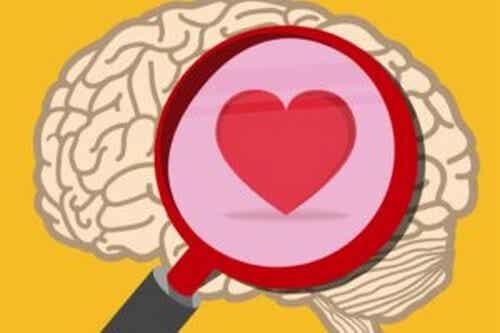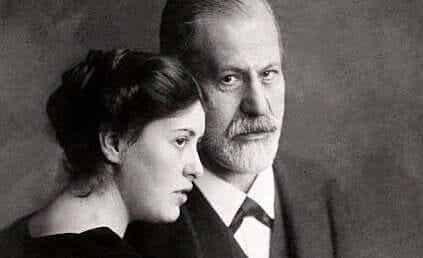Do men and women have a different ability to manage emotions?

Last update: December 06, 2020
Many children have grown up listening to phrases like: "Boys don't cry", "Cry like a girl" or "These are things for girls". For their part, the girls may have received comments such as "These things are for boys" or "Don't be a tomboy!" Do we allow children to express their emotions naturally? Is it true that emotions have no gender?
Are girls more likely to express their feelings? Do men and women have a different ability to manage emotions? There are many positions around this topic and equally numerous are the studies that try to answer these questions. As for the emotional sphere, are we really that different? And if so, what are the reasons?
Forbidden emotions and gender roles
From the moment we are born, we learn to manage our emotions based on the relationships we establish with the people who care for us. Their words, their gestures and their voice serve as a model for us, allowing us to develop the ability to identify our emotions and those of others. Likewise, we learn to express how we feel and to relate to others.
The phrases we hear since childhood - such as "Be a man!" o “Don't be hysterical” - reflect a clear differentiation of gender roles; in other words, the behaviors and emotions allowed and accepted according to the gender they belong to. What society would expect us to do.
This fact makes us adopt certain behaviors from an early age. Each of us tries to adjust our character to fit what is socially accepted. So, at least externally, we behave in a way that is accepted by others.
As a result of this dynamic, clear differences are inculcated between men and women in the management and expression of their emotions.
“An emotion does not cause pain. Resistance or suppression of an emotion causes pain. "
-Frederik Dodson-
Emotions have no gender
Messages conveyed by stories, jokes, games or TV shows influence the way boys and girls socialize and the emotional world. For example, when you talk about sensitive topics with a girl, you tend to use words that are rich in emotion.
Many studies confirm that parents charge the words addressed to their daughters with emotion. Likewise, it has been shown that boys are less expressive than girls during the school term.
While the latter are more inclined to consider their emotions and their words, children show many deficiencies in emotional learning and the ability to express their emotions and their feelings. Males tend to manage and express their emotional states through behaviors. For example, to communicate their state of mind, they begin to argue or perform other actions they have learned preferring them to verbal tools.
The problem is that the lack of knowledge of one's own emotional world affects not only the psychic individuality of the child (and subsequently the adult), but also the ability to understand and recognize the emotional states of other people.
This is due to early differentiation in the learning of emotions and not because males and females have different abilities. It has been found that children whose parents have fostered their emotional expression have the same expressive abilities as girls their age.
The right of children to express their emotions
As psychologist Leire Gartzia and other colleagues point out, most studies on gender and emotional intelligence (EI) have focused on analyzing gender-based differences rather than proposing less stereotyped gender identity models.
Every child has the right to express their feelings and to relate naturally regardless of the gender he wants to attribute to himself. Emotions have no gender.
In children, emotional manifestation should not be punished or repressed. While women strengthen their emotionality since childhood, men learn that emotionality is a sign of weakness or, even worse, of femininity. This blocks their ability to develop an equally large and valuable emotional world.
Such a distinction can provoke repression and render unable to identify and verbalize emotions in later life stages such as adolescence or adulthood, resulting in psychological suffering and enormous relationship difficulties.
True connections, our shared thoughts and emotions keep us connected with others in an authentic way.
Education as the main ingredient
Nobody questions the value of traditional education. Likewise, no one should doubt the importance of emotional education. We must strive for children to grow up in an environment where they can develop cognitively and emotionally. ,
Emotional learning begins in the first years of life and updates his knowledge throughout his life. As children there are two fundamental reference environments: the family and the school. The problem is that on many occasions the right attention is not paid to the emotional education of children.
The inability to manage our emotions can negatively impact us. By distorting the emotional world of children, we will inhibit the emotional potential of future adults. The capacity for emotional development and the expression of emotions is not genetically limited by an individual's sex.
Emotions have no gender. All human beings can and should express their feelings, enjoy the relationships they establish and feel at peace with themselves.
"It is very important to understand that emotional intelligence is not the opposite of intelligence, it is not the triumph of the heart over the head, it is the intersection of both."
-David Caruso-


























